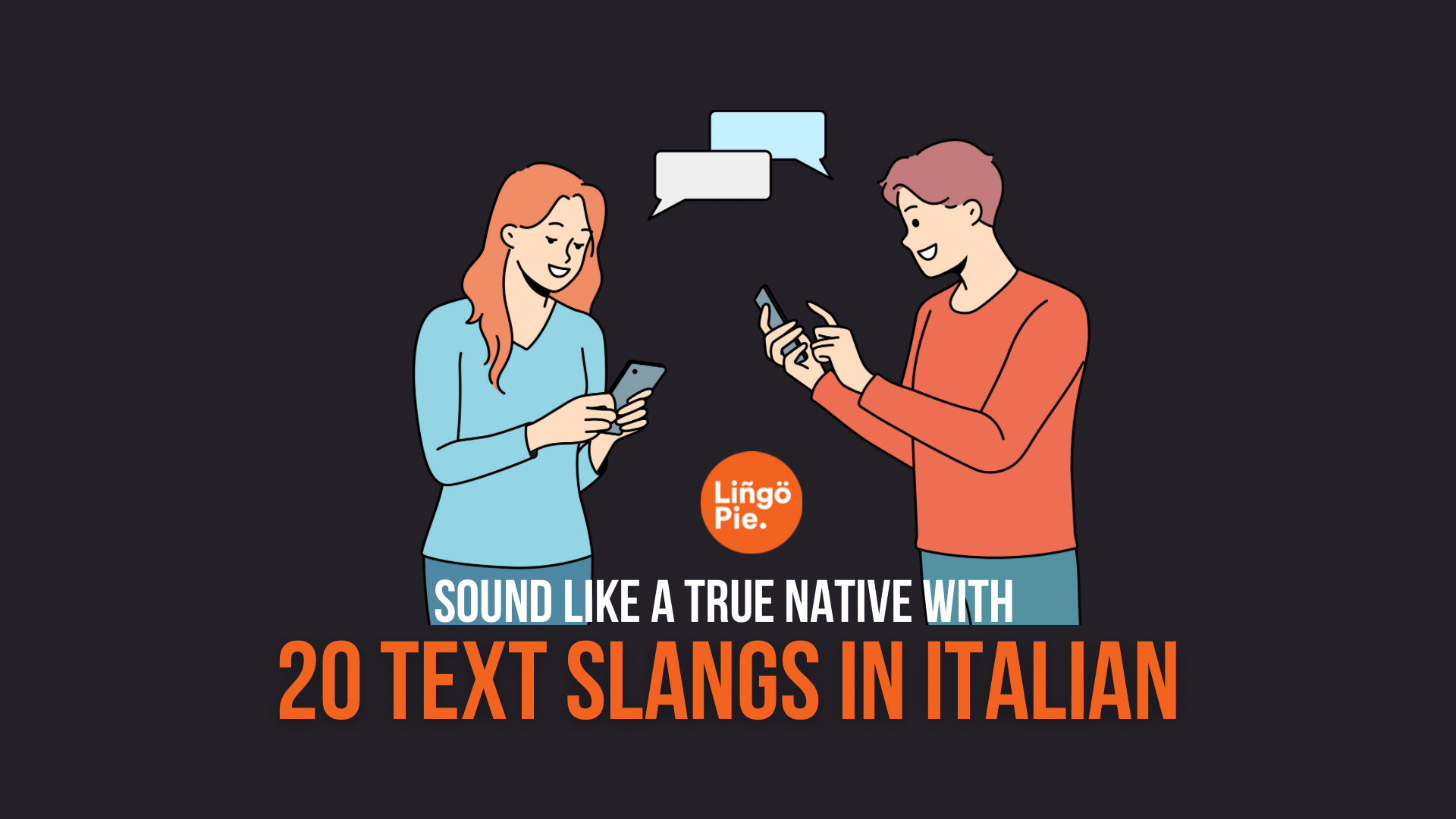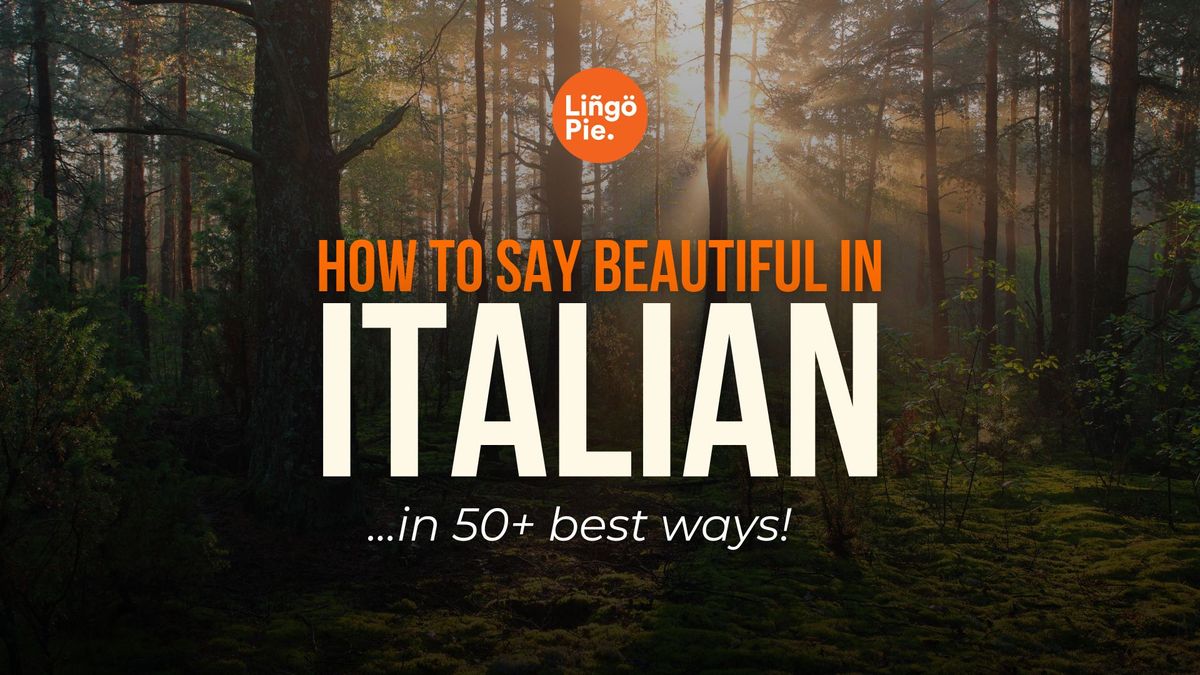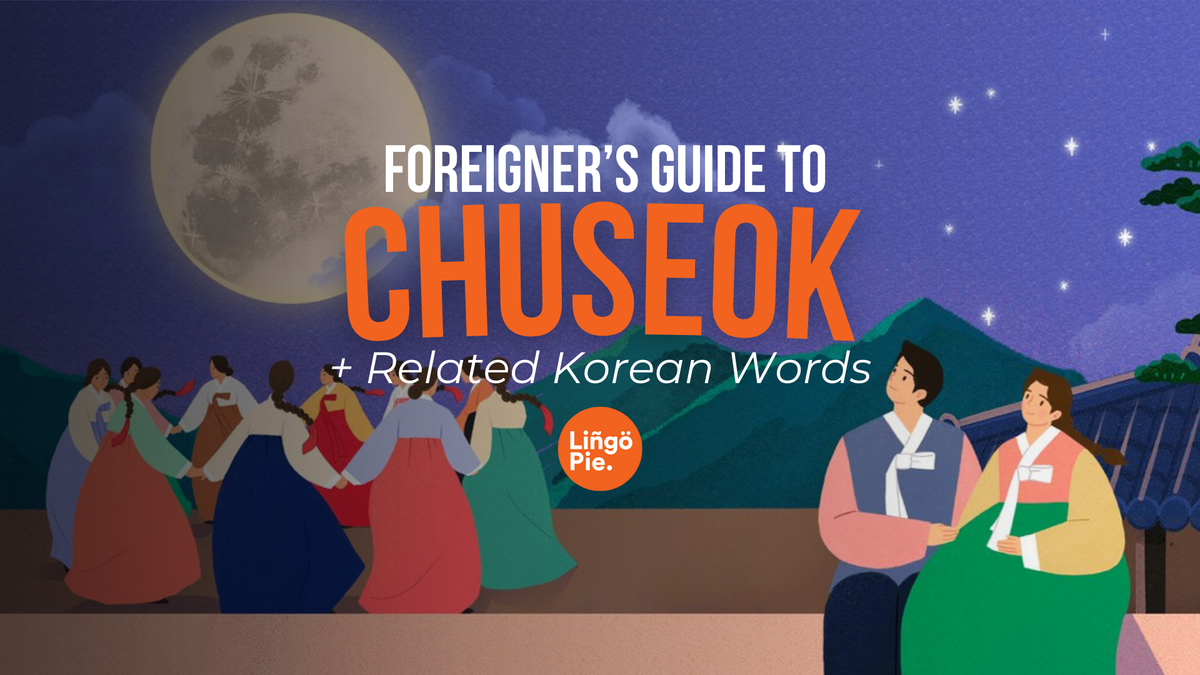So, you wanna know how to say beautiful in Italian? I know exactly what you're going through! My partner's this amazing polyglot, and I thought, "Why not surprise her with some Italian compliments?" Spoiler alert: it worked like a charm and made her feel good about herself!
Even science says that a sincere, genuine compliment gives the same positive boost as receiving a cash reward. Imagine that - you could literally make someone's day as if you've handed them money, just by learning a few Italian words!
So whether you're trying to wow someone special or just want to sound cool on your next Italian getaway, this article is for you! Stick around, and I'll spill all the juicy details on how to say beautiful in Italian- and maybe throw in a few extra compliments for good measure.
Want to dive deeper? Check these out:
- Curious about the learning curve? Read "Is Italian Hard to Learn for English Speakers?"
- Perfect your accent with "9 Tips to Improve Your Italian Pronunciation"

How to Say Beautiful in Italian
Let's be real...Italians are all about beauty. It's not just in their art and architecture - it's in their everyday life. They use words for "beautiful" left and right, whether they're talking about a stunning view, a delicious meal, or a stylish outfit. So learning these words isn't just about compliments - it's about speaking the language of Italian culture.
Now, let's break down the main ways to say "beautiful" in Italian:
Bello (Beautiful)
"Bello" is an adjective in Italian, meaning "beautiful" or "handsome". As an adjective, it describes nouns and agrees with them in gender and number. This is a key concept in Italian grammar that might be new to English speakers.
In Italian, adjectives change their ending based on whether the noun they're describing is:
- Masculine or feminine
- Singular or plural
Here's a table to help you understand how "bello" changes:
| Italian | Form | Example | Translation |
|---|---|---|---|
| Bello | Masculine singular | Il cielo è bello. | The sky is beautiful. |
| Bel | Masculine singular (before consonants) | Ho un bel cane. | I have a beautiful dog. |
| Bella | Feminine singular | La casa è bella. | The house is beautiful. |
| Bei | Masculine plural (before consonants) | Ho dei bei libri. | I have some beautiful books. |
| Begli | Masculine plural (before vowels) | Begli occhi! | Beautiful eyes! |
| Belli | Masculine plural | I ragazzi sono belli. | The boys are handsome. |
| Belle | Feminine plural | Le ragazze sono belle. | The girls are beautiful. |
Important notes:
- Before masculine singular nouns starting with a consonant (except 's + consonant' or 'z'), use "bel" instead of "bello".
- Before masculine plural nouns starting with a vowel or 's + consonant', use "begli".
- "Bella" and "belle" don't change, regardless of what follows.
Practice forming sentences with these different forms to get comfortable with their usage.
Ready to use this word? Here are some example sentences:
- Il cielo è bello oggi. - The sky is beautiful today.
- Ho visto un bel film ieri sera. - I saw a beautiful movie last night.
- Che bella giornata! - What a beautiful day!
- I fiori in giardino sono belli. - The flowers in the garden are beautiful.
- Le ragazze indossano delle belle scarpe. - The girls are wearing beautiful shoes.
Sidenote: Ciao bella means "Hello, beautiful!" You might've heard it in Italian movies as a cheesy pickup line, but don't try that in real life - it's actually considered rude! These days, this is mostly used as a warm greeting between friends, especially women.
Bellissimo (Very beautiful)
"Bellissimo" is the superlative form of "bello". It's used when you want to emphasize that something is extremely or very beautiful. Think of it as the equivalent of "gorgeous" or "stunning" in English.
Like "bello", "bellissimo" changes to agree with the noun it's describing:
| Italian | Form | Example Sentence | Translation |
|---|---|---|---|
| Bellissimo | Masculine singular | Il panorama è bellissimo. | The view is gorgeous. |
| Bellissima | Feminine singular | La torta è bellissima. | The cake is stunning. |
| Bellissimi | Masculine plural | I quadri sono bellissimi. | The paintings are beautiful. |
| Bellissime | Feminine plural | Le montagne sono bellissime. | The mountains are breathtaking. |
"Bellissimo" is more emphatic than "bello". Use it when you want to express that something is extremely beautiful or impressive. It's like stepping up from "beautiful" to "gorgeous" or "stunning" in English.
Want to use this word? Then check out these sentences:
- Il tramonto sul mare è bellissimo. - The sunset over the sea is gorgeous.
- Hai una voce bellissima! - You have a stunning voice!
- I paesaggi toscani sono bellissimi. - Tuscan landscapes are extremely beautiful.
- Che vestito bellissimo indossi! - What a gorgeous dress you're wearing!
- Le Alpi sono bellissime in inverno. - The Alps are breathtaking in winter.
Molto bello (Very beautiful)
"Molto bello" is another way to say "very beautiful". It's a bit more straightforward grammatically because only "bello" changes, while "molto" (meaning "very") stays the same.
| Italian | Form | Example Sentence | Translation |
|---|---|---|---|
| Molto bello | Masculine singular | Il giardino è molto bello. | The garden is very beautiful. |
| Molto bella | Feminine singular | La canzone è molto bella. | The song is very beautiful. |
| Molto belli | Masculine plural | I monumenti sono molto belli. | The monuments are very beautiful. |
| Molto belle | Feminine plural | Le sculture sono molto belle. | The sculptures are very beautiful. |
"Molto bello" is a more straightforward way to say "very beautiful". It's a combination of "molto" (very) and "bello" (beautiful). Only "bello" changes to match the gender and number of the noun, while "molto" always stays the same.
Ready to see these words in action? Read these examples:
- Il concerto di ieri sera è stato molto bello. - Last night's concert was very beautiful.
- La tua nuova casa è molto bella. - Your new house is very beautiful.
- I quadri di questo museo sono molto belli. - The paintings in this museum are very beautiful.
- Ho letto un libro molto bello recentemente. - I recently read a very beautiful book.
- Le spiagge di questa isola sono molto belle. - The beaches on this island are very beautiful.

Other Ways to Say Beautiful in Italian
Before we dive into more Italian words for "beautiful," let's quickly cover a basic sentence structure you can use with any of these compliments. The structure is simple: [Subject] + è + [adjective]. For example:
- Il tramonto è stupendo. (The sunset is stunning.)
- La città è incantevole. (The city is enchanting.)
- Tu sei affascinante. (You are fascinating/charming.)
You can easily swap in different subjects and adjectives using this structure. Now, let's explore some other ways to express beauty in Italian:
| Italian Word | Meaning | Example Sentence | Translation |
|---|---|---|---|
| Stupendo/a | Stunning | La vista è stupenda. | The view is stunning. |
| Meraviglioso/a | Marvelous | Il concerto era meraviglioso. | The concert was marvelous. |
| Incantevole | Enchanting | Il giardino è incantevole. | The garden is enchanting. |
| Splendido/a | Splendid | L'opera d'arte è splendida. | The artwork is splendid. |
| Affascinante | Charming/Fascinating | La storia è affascinante. | The story is fascinating. |
| Magnifico/a | Magnificent | Il palazzo è magnifico. | The palace is magnificent. |
| Grazioso/a | Pretty/Graceful | La ballerina è graziosa. | The ballerina is graceful. |
| Favoloso/a | Fabulous | La festa era favolosa. | The party was fabulous. |
| Fantastico/a | Fantastic | Il film è fantastico. | The movie is fantastic. |
| Spettacolare | Spectacular | Il panorama è spettacolare. | The panorama is spectacular. |
| Adorabile | Adorable | Il cucciolo è adorabile. | The puppy is adorable. |
| Delizioso/a | Delightful | Il profumo è delizioso. | The perfume is delightful. |
| Elegante | Elegant | L'abito è elegante. | The dress is elegant. |
| Attraente | Attractive | La modella è attraente. | The model is attractive. |
| Carino/a | Cute | Il bambino è carino. | The child is cute. |
| Squisito/a | Exquisite | Il pasto era squisito. | The meal was exquisite. |
| Sublime | Sublime | La musica è sublime. | The music is sublime. |
| Pittoresco/a | Picturesque | Il villaggio è pittoresco. | The village is picturesque. |
| Radioso/a | Radiant | Il suo sorriso è radioso. | Her smile is radiant. |
| Seducente | Seductive | Il suo sguardo è seducente. | His/Her gaze is seductive. |
Remember, adjectives ending in -o/a change to match the gender of the noun (use -o for masculine, -a for feminine). Adjectives ending in -e (like "incantevole" and "affascinante") stay the same for both genders.

Complimenting Someone In Italian
Italians are known for their warmth and expressiveness, and compliments are an essential part of their social fabric. However, please remember not to go overboard especially if you're speaking to a total stranger! If you don't want to say someone if beautiful in Italian, you can use the ones I rounded up below!
Italian Compliments on Appearance
Italians take pride in their appearance, and complimenting someone's looks is common and appreciated when done respectfully.
| Italian | English |
|---|---|
| Sei bellissimo/bellissima! | You're very handsome/beautiful! |
| Hai un bel sorriso. | You have a beautiful smile. |
| Ti sta benissimo quel vestito. | That dress looks great on you. |
| Hai degli occhi stupendi. | You have stunning eyes. |
| Che bell'aspetto! | You look great! |
| Sei in forma! | You're in great shape! |
| Hai un fisico fantastico. | You have a fantastic physique. |
| Mi piace il tuo nuovo taglio di capelli. | I like your new haircut. |
| Sei molto elegante. | You're very elegant. |
| Hai un aspetto radioso oggi. | You look radiant today. |
Italian Compliments on Personality or Character
Praising someone's personality or character traits is a wonderful way to show appreciation in Italian culture.
| Italian | English |
|---|---|
| Sei una persona meravigliosa. | You're a wonderful person. |
| Hai un cuore d'oro. | You have a heart of gold. |
| Sei molto gentile. | You're very kind. |
| La tua allegria è contagiosa. | Your cheerfulness is contagious. |
| Sei davvero divertente. | You're really funny. |
| Ammiro la tua forza. | I admire your strength. |
| Sei una persona di parola. | You're a person of your word. |
| La tua pazienza è ammirevole. | Your patience is admirable. |
| Sei sempre così positivo/positiva. | You're always so positive. |
| La tua generosità mi impressiona. | Your generosity impresses me. |
Italian Compliments on Skills or Achievements
Recognizing someone's talents or accomplishments is a great way to build confidence and show respect.
| Italian | English |
|---|---|
| Sei molto bravo/brava in questo. | You're very good at this. |
| Hai un talento naturale. | You have a natural talent. |
| Complimenti per il tuo successo! | Congratulations on your success! |
| Il tuo lavoro è impressionante. | Your work is impressive. |
| Sei un vero professionista. | You're a true professional. |
| Hai fatto un ottimo lavoro. | You've done an excellent job. |
| La tua creatività è straordinaria. | Your creativity is extraordinary. |
| Sei un leader nato/nata. | You're a born leader. |
| Il tuo impegno è ammirevole. | Your dedication is admirable. |
| Hai delle capacità eccezionali. | You have exceptional abilities. |
General Expressions of Admiration In Italian
These Italian phrases can be used to express general admiration or appreciation in various situations.
| Italian | English |
|---|---|
| Ti ammiro molto. | I admire you a lot. |
| Sei fantastico/fantastica! | You're fantastic! |
| Che meraviglia! | How wonderful! |
| Sei un'ispirazione per me. | You're an inspiration to me. |
| Non smetti mai di sorprendermi. | You never cease to amaze me. |
| Sono fortunato/fortunata a conoscerti. | I'm lucky to know you. |
| Sei davvero speciale. | You're really special. |
| Mi lasci senza parole. | You leave me speechless. |
| Che persona straordinaria che sei! | What an extraordinary person you are! |
| Sei unico/unica nel tuo genere. | You're one of a kind. |

Responding To Compliments In Italian
In Italian culture, graciously accepting compliments is just as important as giving them. While modesty is appreciated, it's also customary to acknowledge the compliment warmly. Here are some ways to respond to compliments in Italian, ranging from simple acknowledgments to more elaborate responses.
| Italian Response | English Translation | Usage |
|---|---|---|
| Grazie! | Thank you! | A simple, all-purpose response |
| Grazie mille! | Thank you very much! | A more emphatic thank you |
| Sei molto gentile. | You're very kind. | Acknowledges the complimenter's kindness |
| Che gentile da parte tua! | How kind of you! | Expresses appreciation for the kindness |
| Mi fa piacere che ti piaccia. | I'm glad you like it. | When complimented on something you've done or own |
| Davvero? Grazie! | Really? Thanks! | Shows surprise and gratitude |
| Troppo buono/a! | You're too kind! | A modest way to accept a compliment |
| Ne sono lusingato/a. | I'm flattered. | For when you feel truly honored |
| Il piacere è tutto mio. | The pleasure is all mine. | Often used in response to compliments about one's company or hospitality |
| Anche tu! | You too! | When you want to return the compliment |
Remember, the most important thing is to be sincere in your response. Italians value authenticity in social conversations, so a heartfelt "grazie" can go a long way in building positive relationships.
Learn Italian With Lingopie
So there you have it - your crash course in Italian compliments and beauty-related phrases. Whether you're admiring art in Florence or chatting with locals in a Roman café, these expressions will help you navigate social situations with more confidence.
Just remember, it's not about perfection, but about making genuine connections. Even if you stumble over pronunciation, your effort to speak the local language will often be met with appreciation.
For those of you wanting to dive deeper, check out Lingopie's features.
It's a language-learning platform that uses Italian TV shows and movies as teaching tools. You'll hear these phrases used in real-life contexts, which is invaluable for understanding the nuances of when and how to use them. It's a practical way to build your Italian skills while also getting a taste of contemporary Italian culture.
Give it a shot if you're serious about improving your Italian beyond just memorizing phrases.







![How Many Italian-Speaking Countries Are Out There? [2025 Data]](/blog/content/images/size/w300/2025/06/Italian-speaking-countries.jpg)


